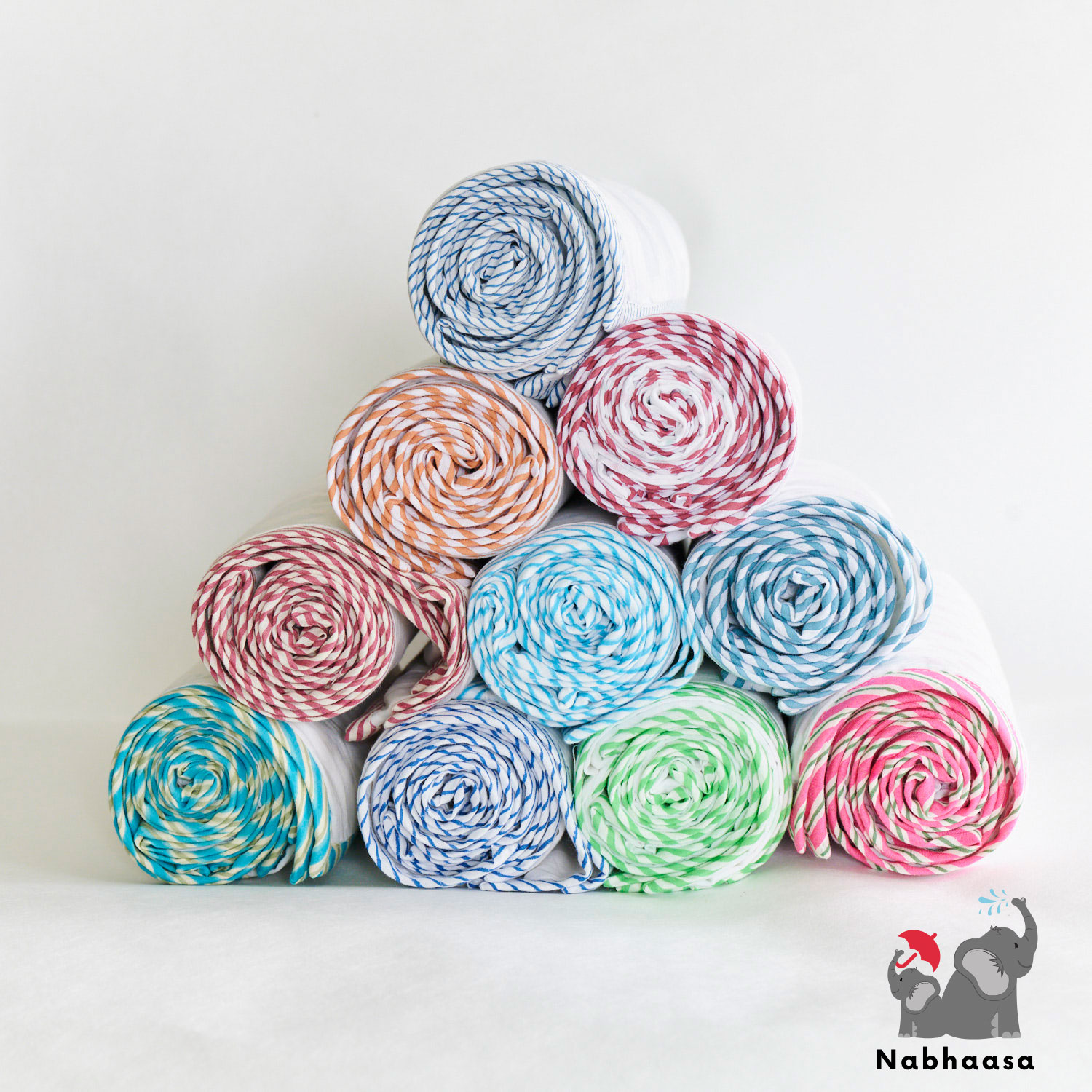 Aditi and Prriyam have known each other for over 20 years. Around 18 months ago they began brainstorming ideas for a business and soon founded Nabhaasa – eco-friendly swaddling blankets (dohars) for newborn babies and children up to 5 years old. Swaddling involves snuggly wrapping your baby in a blanket for warmth and comfort. This plays an important role in the traditional Indian newborn journey.
Aditi and Prriyam have known each other for over 20 years. Around 18 months ago they began brainstorming ideas for a business and soon founded Nabhaasa – eco-friendly swaddling blankets (dohars) for newborn babies and children up to 5 years old. Swaddling involves snuggly wrapping your baby in a blanket for warmth and comfort. This plays an important role in the traditional Indian newborn journey.
Aditi Jones and Charlotte Davies met through their children’s school and were in the same PTA. Charlotte fell in love with the Nabhaasa product and their story and soon became a partner.
Prior to starting Nabhaasa, both Adi and Charlotte had been self-employed for a number of years. Charlotte runs her own digital marketing business and has been a specialist business adviser for the Cumbria Business Growth Hub in the past, so she knew about the help available. Charlotte said, “I knew when we decided to work together that it would be really helpful to get business support as a start-up.”
The business start-up support (BSUS) programme offers free support to those wanting to start a business, or those in the early years of trading. The package of support includes a three-day course on starting a business, one-to-one meetings with a business adviser, training and help with a business plan.
It was before the covid-19 pandemic hit, in early 2020, that they were put in touch with Growth Hub adviser, Susan Crooks. Aditi said, “She is absolutely fabulous and the energy she brings is amazing! She has so much to give and understands where we’re coming from… our product is so different in the British market; she does think big but also focuses on us as well.”

Charlotte also praised Susan, “She’s very good at keeping us accountable and setting out the next steps we need to take, particularly behind the scenes.” Neither Charlotte nor Aditi had
experience of setting up the processes necessary for a retail business, so Susan’s help here was invaluable. The business has now moved into the next stage of support from their adviser, although delayed due to the pandemic.
The website was launched in January 2021. Charlotte said, “We plan to do the bulk of our sales online but will have a few key retail outlets stock our product.” The dohars are currently stocked in shops in Cockermouth and Keswick, but they believe the majority of sales will come from online traffic, particularly after the turbulence of the last year.
Aditi said, “We are proud to be associated with an all women enterprise, from production onwards. It is empowering.” The blankets are made in Jaipur by an enterprise run by a woman and employs only women, the three partners in Nabhaasa are all women, the two shops in Cockermouth and Keswick are owned and run by women and their growth hub adviser is also a woman.
If you’d like to find out more about the business start-up support on offer, please visit here or email us on info@cumbriagrowthhub.co.uk
 The funding that supports the Growth Hub comes from a range of sources including Cumbria Chamber of Commerce, the European Regional Development Fund, Sellafield Ltd., Carlisle City Council, South Lakeland District Council, Penrith Industrial BID and Cumbria LEP. The Growth Hub is receiving up to £2,528,767 of funding from the England European Regional Development Fund as part of the European Structural and Investment Funds Growth Programme 2014-2020. The BSUS project is receiving up to £1,112,686 of funding from the England European Regional Development Fund as part of the European Structural and Investment Funds Growth Programme 2014-2020. The Ministry for Housing Communities and Local Government is the Managing Authority for European Regional Development Fund. Established by the European Union, the European Regional Development Fund helps local areas stimulate their economic development by investing in projects which will support innovation, businesses, create jobs and local community regenerations. For more information, click here.
The funding that supports the Growth Hub comes from a range of sources including Cumbria Chamber of Commerce, the European Regional Development Fund, Sellafield Ltd., Carlisle City Council, South Lakeland District Council, Penrith Industrial BID and Cumbria LEP. The Growth Hub is receiving up to £2,528,767 of funding from the England European Regional Development Fund as part of the European Structural and Investment Funds Growth Programme 2014-2020. The BSUS project is receiving up to £1,112,686 of funding from the England European Regional Development Fund as part of the European Structural and Investment Funds Growth Programme 2014-2020. The Ministry for Housing Communities and Local Government is the Managing Authority for European Regional Development Fund. Established by the European Union, the European Regional Development Fund helps local areas stimulate their economic development by investing in projects which will support innovation, businesses, create jobs and local community regenerations. For more information, click here.
